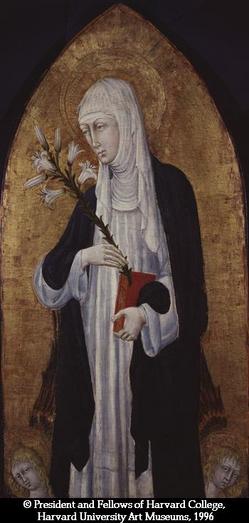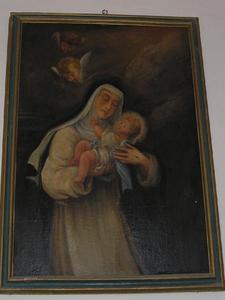Pope Benedict spoke in his General Audience today of the great 14th century Dominican sister, Saint Catherine of Siena, holy woman, ambassador, truth-speaker, Doctor of the Church and spiritual mother. His choice of saint could not have been better since the presence of many of the new cardinals were in attendance. Rome Reports provides a brief video clip on the papal address.

Today I would
like to speak to you about a woman who has had an eminent role in the history
of the Church. She is St. Catherine of Siena. The century in which she lived --
the 14th -- was a troubled time for the life of the Church and for the
whole social fabric in Italy and Europe.
However, even in the moments of greatest difficulty, the Lord does not cease to bless his People, raising men and women saints who stir minds and hearts, bringing about conversion and renewal. Catherine is one of these and still today she speaks to us and pushes us to walk courageously toward sanctity to be disciples of the Lord in an ever fuller sense.
Born in Siena in 1347 to a very numerous family, she died in her native city in 1380. At 16, moved by a vision of St. Dominic, she entered the Dominican Third Order, in the feminine branch called the Mantellate. She stayed with her family and confirmed the vow of virginity she made privately when she was still an adolescent; she dedicated herself to prayer, penance, and works of charity, above all for the benefit of the sick.
When her fame for sanctity spread, she became the protagonist in an intense activity of spiritual counsel, dealing with all categories of persons: nobles and politicians, artists and ordinary people, consecrated persons, ecclesiastics, and including Pope Gregory XI, who at that time resided in Avignon and whom Catherine exhorted energetically and effectively to return to Rome. She traveled a lot to solicit the interior reform of the Church and to foster peace between states. For this reason also the Venerable John Paul II declared her co-patroness of Europe: so that the Old World would never forget its Christian roots that are at the base of its journey and continue to draw from the Gospel the fundamental values that ensure justice and concord.



